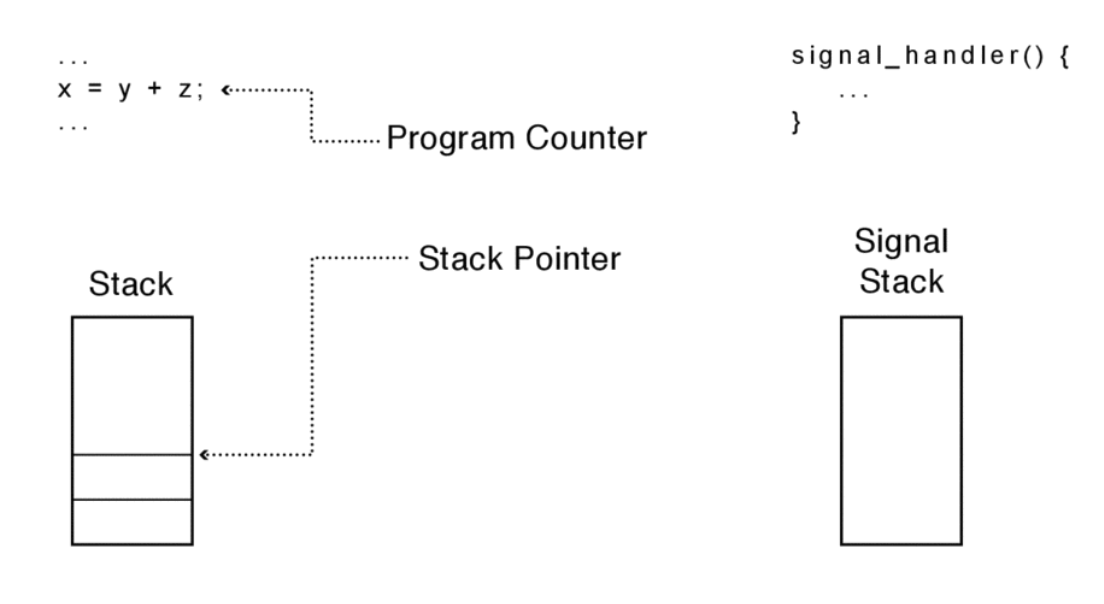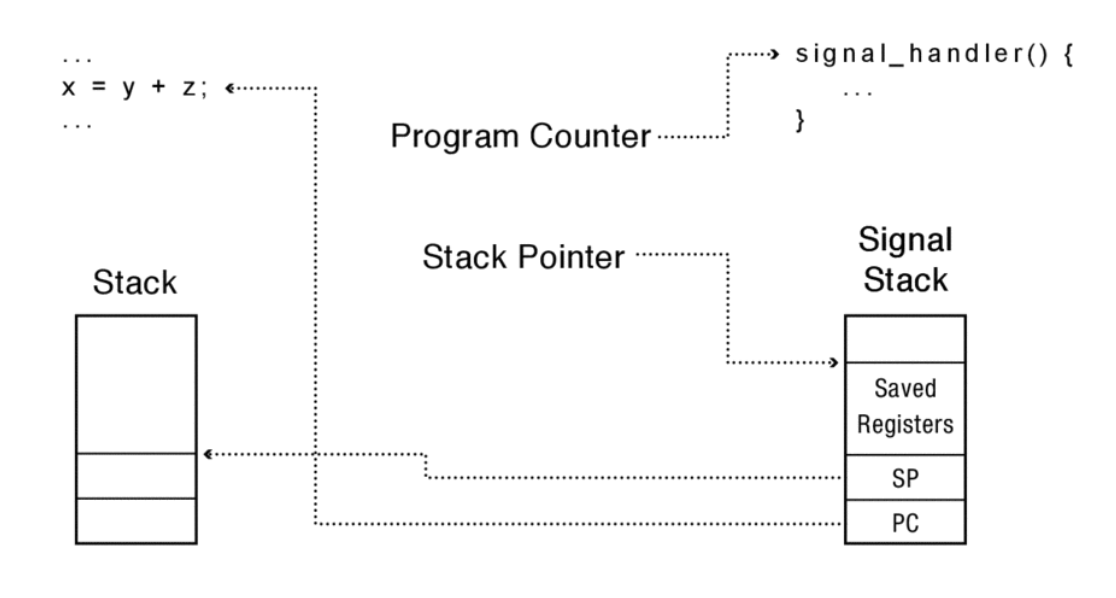Necessity of System Upcalls
To allow applications to implement operating system-like functionality, more than system call is required; applications can also benefit from being told when events occur that need their immediate attention. Such virtualised interrupts and exceptions are called upcalls, also known as signals (in UNIX).
Uses of System Upcalls
Preemptive user-level threads
An application may run multiple tasks, or threads, in a process.
Asynchronous I/O notification (async / await)
In an asynchronous I/O, a system calls starts the request and returns immediately. Later, the application can poll the kernel for I/O completion, or a separate notification can be sent via an upcall to the application when the I/O completes.
Interprocess communication
A kernel upcall is needed if a process generates an event that needs the instant attention of another process.
User-level exception handling
Applications may have their own exception handling routines. For this, the operating system needs to inform the application when it receives a processor exception.
User-level resource allocation
Many applications are able to optimise their behaviour to differing amounts of CPU time or memory.
- e.g., Java garbage collection
Diagrams
-
The state of the user program and signal handler before a UNIX signal

-
The state of the user program and signal handler during a UNIX signal

Comparison with interrupts
Types of Signals
- In place of hardware-defined interrupts and processor exceptions, the kernel defines a limited number of sifnal types that a process can receive.
Handlers
- The kernel defines its own interrupt vector.
- Each process defines its own signal handlers for each signal type.
Signal Stack
- The kernel uses interrupt stack, a region of kernel memory when handling interrupts.
- Applications have the option to run UNIX signal handlers on the process’s normal execution stack, or on a special signal stack allocated buy the user process in user memory.
Signal Masking
- The kernel can defer the arrival of interrupts via interrupt masking.
- UNIX defers signals for events that occur while the signal handler for those types of events is in progress.
- The deferred signal is delivered once the handler returns to the kernel.
Processor State
- The kernel copies onto the signal stack the saved state of the program counter, stack pointer, and general-purpose registers at the point when the program stopped.
- When the signal handler returns, the kernel reloads the saved state into the processor to resume program execution.
- The signal handler can also modify the saved state, so that the kernel resumes a different user-level task on return.